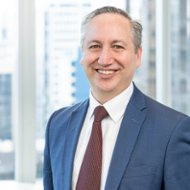This September marks the five-year anniversary since we launched the Fidelity Global Future Leaders Fund. From pandemic disruptions and inflation shocks to rapid innovation in artificial intelligence (AI) and geopolitical tensions, these five years have tested every principle of portfolio construction and discipline. Marking this milestone, I reflect on the importance of experience, process and patience.
Navigating volatility with a balanced, dynamic approach
Sentiment can swing from euphoria to despair seemingly overnight, and a single-style investment approach can leave portfolios exposed, and investors vulnerable.
Investing through irrational markets over the past five years has reinforced my conviction in our balanced, multi-factor process. By consistently weighing Quality, Value, Transition, and Momentum (QVTM), our team doesn’t chase fleeting trends, but seek to capture durable returns and mitigate downside risk.
Our disciplined approach - honed through market cycles - has helped us to participate in innovation and growth, and avoid pitfalls of hype and overexposure. We’ve been successfully identifying quality businesses that can sustain attractive returns, led by credible management teams with clear financial pathways.
Milestones and lessons from the portfolio
We’ve selected a couple of key holdings over this five-year period help to illustrate our journey and the Fund’s unique QVTM investment process:
- Arista Networks stands out as a high conviction position. The company supplies networking equipment critical to the functioning of modern data centres. With only a handful of global players able to meet the scale and reliability requirements of firms like Microsoft and Meta, Arista Networks benefits from both high barriers to entry and strong customer trust. When we first invested in 2020, returns on capital were well above average, and the company’s position in the “picks and shovels” of cloud computing and AI adoption made it durable and what we like to call a “beautiful compounder”. As demand for modern data-centre networking surged, Arista’s combination of strong fundamentals, management depth, and clear growth trajectory delivered significant returns for the Fund. Our disciplined process signalled the right time to exit, protecting gains before it transitioned out of our mid-cap universe.
- AppLovin offered a different kind of opportunity: a business in transition, initially loss-making but delivering strong operating leverage as revenues and profitability scaled. Its platform helps mobile developers acquire users and monetise apps. Over time, that translated into strong profitability and high returns on capital and has been a strong performer for the Fund.
- Games Workshop, the business behind the Warhammer franchise, is a great example of finding value in a niche brand with deep cultural roots and global retail reach. At first glance, the business appears very niche: it produces miniature figurines that fans collect, paint and use in tabletop battles. Yet beneath this hobby lies a highly engaged community, a global retail footprint, and consistent cash generation. The company has built strong brand equity with loyal customers who often stay invested in the hobby for decades. More recently, it has expanded into digital gaming and film through a partnership with Amazon Prime, which could bring the Warhammer universe to a much broader audience and compete with the likes of Marvel and DC. While we view this as potential upside, our investment case remains anchored in the steady economics of the core figurine business. Its stability and selective growth prospects fit nicely within a balanced, long-term portfolio.
- Roblox, by contrast, highlights why we avoid being led by hype. The business is a well-known gaming platform with millions of users, and it became a stock market favourite when it listed in 2021. The story was compelling, and it attracted significant enthusiasm from retail investors who were drawn to its cultural relevance and growth narrative. But beneath the excitement, the fundamentals did not stack up for us. Our research highlighted widening operating losses and limited evidence of sustainable profitability (stretching far beyond three years). For us, the thesis failed the viability test, reminding us that popularity and trends rarely substitute for quality and business endurance.
Performance and consistency through the cycle
Five years on, the lesson is clear: balance and discipline matter more than prediction. We have seen that markets can turn suddenly, sentiment swings to extremes, and hype lures investors into unsustainable positions. The companies that endure have strong fundamentals, credible leadership and business models capable of compounding over time. Equally, the investments we avoided reinforce the value of patience and restraint. For us, the past five years have reaffirmed the strength in our process, confirming that finding global “future leaders” is less about hype and more about a repeatable process that weighs quality, value, transition, and momentum equally.
As we look to the next five years, our commitment remains focused on uncovering resilient global businesses with the potential to grow and become market leaders in a changing world. All while holding fast to the lessons learned: avoid emotion, favour fundamentals, and let balance guide every decision.
